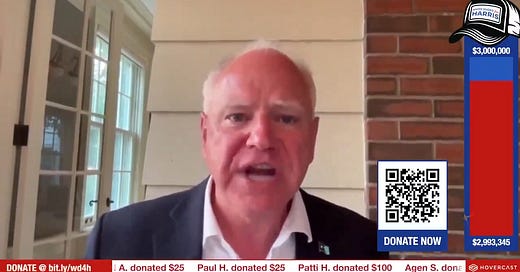No, socialism is not "neighborliness"
Kamala Harris's new VP pick had a kind word to say about socialism, but only at the expense of redefining it.
Right out of the gate, Kamala Harris’s new vice presidential running-mate Tim Walz has gifted us with a thrilling new controversy: a video where he explains to volunteers that “one person’s socialism is another person’s neighborliness.”
Keep reading with a 7-day free trial
Subscribe to Carl Beijer to keep reading this post and get 7 days of free access to the full post archives.




